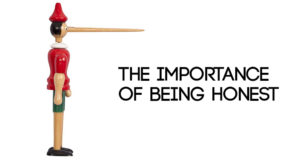“Speak the truth and nothing but the truth during job interviews”
-Stephen E. Seckler
Does your prospective employer need to know that you have a big gap in your career? Obviously yes. Do you need to disclose to a recruiter that you didn’t leave your last firm voluntarily, but you were actually asked to leave? Of course; you need to set these truths right. Honesty, especially while on a job interview, is considered as the best policy. It is seen as a key differentiator in setting a candidate apart from others. Being dishonest in an interview can have serious repercussions. You may think that lying and pretending to be something that you are not or exaggerating your achievements in front of the interviewers is no big deal and you shall never be caught. The reality is that lies can actually turn into more lies and sooner than you think, you are going to be caught. You shall not only lose your job but you are going to be labeled as someone whose integrity is questionable. This is exactly not how you want to be remembered. So being realistic and honest about what you can and cannot do on the job is going to be beneficial to you in the long run.
Why do applicants lie?
There are basically two main areas wherein most applicants lie.
- Lying about job history: Due to various reasons, applicants have gaps between years and places of employment. They are apprehensive that these gaps will pose a negative impact on the minds of the recruiters and so they go to great lengths to reduce the gaps in their employment history. But the problem with lying about these gaps is that the world is a smaller place these days. If the potential recruiter smells a rat, he can easily call up your past employers and check your credentials. They can verify what your exact years and months of employment were. They can also determine if you left the company on your own terms or if you were terminated from your position. So it is wise, to be honest, and sincere if you truly want to gain employment.
- Lying about educational qualifications: The second most common area of interest wherein applicants lie is in regard to their educational qualifications. Most applicants are under the false impression that employers will not bother to check out the education of their applicants before hiring them. That’s not true. Recruiters are concerned about the cost of a wrong recruitment and they do not mind to spend to get the background verification done from reputed agencies before rolling out the offer.
- Benefits of being honest in your interview: Be honest! You gain a lot. History says that most of the people carry career baggage from not fitting in culturally with a previous employer and receiving a poor reference to getting fired. The temptation is to bend the truth significantly or to bluff your way through uncomfortable questions. Keep yourself positive. What you gain from this approach is outlined below.
- Employers trust you: If you lie in an interview, you shall be caught. Your eye movements and body language shall give it away to the recruiters. Most professional interviewers will notice that you suddenly look shifty and uncomfortable when you are lying. You may sometimes be successful to “pull the wool over the eyes” of the recruiters. But the bad news is that it is only a matter of time that the employers will know the truth. Someday or the other you will be caught. When this happens, life becomes difficult for you. Employers will question your credibility and whatever you say or do would be put under the scanner. This doesn’t help to promote a fruitful, positive and trustworthy relationship between the employer and employee.
- Employers have real expectations for you: If you fib in an interview; you set higher expectations for your potential recruiter. That is bad news for you. You are making it harder to keep them satisfied with your performance if you land up with the job. Being honest in interviews helps to keep employer expectations more realistic and attainable, which will ultimately benefit you in the long run. It makes you trusted, likable and adds to your credibility.
- You Increase your chances of Success: If you are a marketing professional and do not know the tricks of “ New Client Acquisition” but claimed it as one of your main strengths in your interview, your employer will expect you to be successful at new client acquisitions without any additional coaching or tutelage. This could potentially lead to your downfall. However, if you were honest and upfront in your interview saying that you need a bit of further coaching in regards to new client acquisition, you will more than likely receive the coaching you require and find out after a few weeks that you have now become adept at it.
The Way Ahead
In an interview, you need to tell the truth about material facts. You also have an obligation not to mislead an interviewer through omission. Integrity still counts for a lot in interviews. It is better, to be honest than to be sorry later on.
